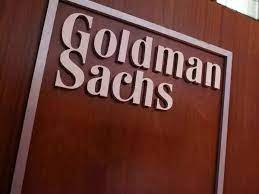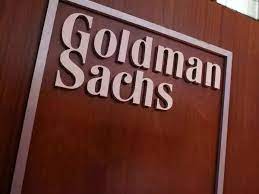
According to a report published by the news agency Reuters, Goldman Sachs Group Inc's asset management divisions is planning to significantly bring down the $59 billion in alternative investments that have negatively impacted the weighed on the bank's earnings.
According to Julian Salisbury, Goldman Sachs' chief investment officer of asset and wealth management, the Wall Street giant is planning to divest its positions during the next few years and substitute some of the funds on its balance sheet with outside capital.
"I would expect to see a meaningful decline from the current levels," Salisbury said. "It's not going to zero because we will continue to invest in and alongside funds, as opposed to individual deals on the balance sheet."
Goldman had a dismal fourth quarter, falling far short of Wall Street profit targets. Goldman, like other banks struggling as corporate dealmaking slows, is laying off over 3,000 employees in its largest round of layoffs since the 2008 financial crisis.
He stated that the bank will provide more information on its asset plan during Goldman Sachs' investor day on February 28. In addition to traditional investments such as stocks and bonds, alternative assets can include private equity or real estate.
According to Mark Narron, senior director of North American banks at credit rating agency Fitch Ratings, reducing the investments on a bank's balance sheet can reduce earnings volatility.
He added that selling investments reduces the amount of so-called risk-weighted assets that regulators use to determine the amount of capital a bank must hold.
According to last week's earnings, Goldman Sachs' asset and wealth management saw a 39% drop in net revenue to $13.4 billion in 2022, with revenue from equity and debt investments falling 93% and 63%, respectively.
According to the results, the $59 billion in alternative investments held on the balance sheet has decreased from $68 billion the previous year. Along with other investments, the positions included $15 billion in equity investments, $19 billion in loans, and $12 billion in debt securities.
"Obviously, the environment for exiting assets was much slower in the back half of the year, which meant we were able to realize less gains on the portfolio compared to 2021," Salisbury said.
If there is improvement in the sale of environment for asset, Salisbury expects "a faster decline in the legacy balance sheet investments."
"If we would have a couple of normalized years, you'd see the reduction happening," in that period, he said.
Given the state of the capital markets, clients are showing a strong interest in private credit, according to Salisbury.\
"Private credit is interesting to people because the returns available are attractive," he said. "Investors like the idea of owning something a little more defensive but high yielding in the current economic environment."
Goldman Sachs' asset management division closed a $15.2 billion fund earlier this month to invest in junior debt in private equity-backed companies.
According to data provider Preqin, private credit assets in the industry have more than doubled to more than $1 trillion since 2015.
According to Salisbury, investors are interested in private equity funds and are looking to buy positions in the secondary market when existing investors sell their stakes.
The US investment-grade primary bond market began 2023 with a flurry of new transactions.
Because of the uncertain economic environment, investors are willing to buy bonds with longer maturities while seeking higher credit quality, according to him.
According to Goldman Sachs economists, the Federal Reserve will raise interest rates by 25 basis points in February, March, and May before remaining unchanged for the rest of the year, according to Salisbury.
More broadly, the "chilling effect" of last year's rate hikes is beginning to cool economic activity, according to Salisbury, citing softer hiring activity and slower rent growth.
(Source:www.reuters.com)
According to Julian Salisbury, Goldman Sachs' chief investment officer of asset and wealth management, the Wall Street giant is planning to divest its positions during the next few years and substitute some of the funds on its balance sheet with outside capital.
"I would expect to see a meaningful decline from the current levels," Salisbury said. "It's not going to zero because we will continue to invest in and alongside funds, as opposed to individual deals on the balance sheet."
Goldman had a dismal fourth quarter, falling far short of Wall Street profit targets. Goldman, like other banks struggling as corporate dealmaking slows, is laying off over 3,000 employees in its largest round of layoffs since the 2008 financial crisis.
He stated that the bank will provide more information on its asset plan during Goldman Sachs' investor day on February 28. In addition to traditional investments such as stocks and bonds, alternative assets can include private equity or real estate.
According to Mark Narron, senior director of North American banks at credit rating agency Fitch Ratings, reducing the investments on a bank's balance sheet can reduce earnings volatility.
He added that selling investments reduces the amount of so-called risk-weighted assets that regulators use to determine the amount of capital a bank must hold.
According to last week's earnings, Goldman Sachs' asset and wealth management saw a 39% drop in net revenue to $13.4 billion in 2022, with revenue from equity and debt investments falling 93% and 63%, respectively.
According to the results, the $59 billion in alternative investments held on the balance sheet has decreased from $68 billion the previous year. Along with other investments, the positions included $15 billion in equity investments, $19 billion in loans, and $12 billion in debt securities.
"Obviously, the environment for exiting assets was much slower in the back half of the year, which meant we were able to realize less gains on the portfolio compared to 2021," Salisbury said.
If there is improvement in the sale of environment for asset, Salisbury expects "a faster decline in the legacy balance sheet investments."
"If we would have a couple of normalized years, you'd see the reduction happening," in that period, he said.
Given the state of the capital markets, clients are showing a strong interest in private credit, according to Salisbury.\
"Private credit is interesting to people because the returns available are attractive," he said. "Investors like the idea of owning something a little more defensive but high yielding in the current economic environment."
Goldman Sachs' asset management division closed a $15.2 billion fund earlier this month to invest in junior debt in private equity-backed companies.
According to data provider Preqin, private credit assets in the industry have more than doubled to more than $1 trillion since 2015.
According to Salisbury, investors are interested in private equity funds and are looking to buy positions in the secondary market when existing investors sell their stakes.
The US investment-grade primary bond market began 2023 with a flurry of new transactions.
Because of the uncertain economic environment, investors are willing to buy bonds with longer maturities while seeking higher credit quality, according to him.
According to Goldman Sachs economists, the Federal Reserve will raise interest rates by 25 basis points in February, March, and May before remaining unchanged for the rest of the year, according to Salisbury.
More broadly, the "chilling effect" of last year's rate hikes is beginning to cool economic activity, according to Salisbury, citing softer hiring activity and slower rent growth.
(Source:www.reuters.com)














